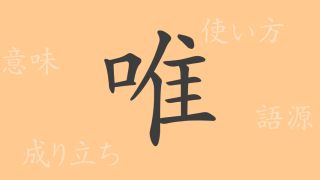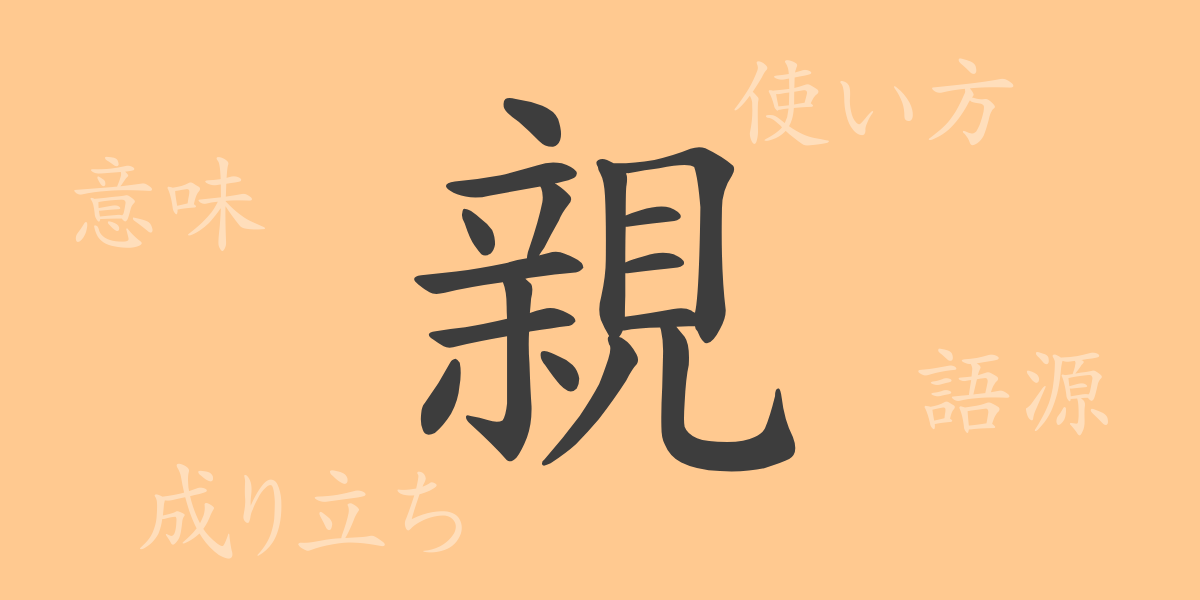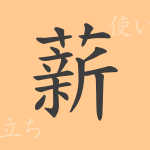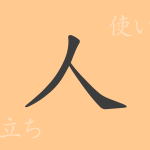Kanji, with its intricate forms and meanings, enriches the Japanese language. ‘親’ (おや) is a Kanji frequently used in daily life, foundational to family relationships and symbolic of societal bonds and responsibilities. This article explores the origins, meanings, uses, and cultural significance of ‘親’, delving into its various idioms and proverbs to highlight its importance in the Japanese language.
Origins of 親 (おや)
The Kanji ‘親’ traces back to ancient China and has become a staple in common Japanese Kanji. Originally combining ‘見’ (みる), meaning to see, and ‘木’, meaning wood, it suggested the act of ‘looking at wood’, evolving to mean ‘to nurture’ or ‘to care for’. This reflects the role of parents nurturing and watching over their children.
Meaning and Usage of 親
The Kanji ‘親’ encompasses several meanings. Most commonly, it refers to parents, denoting familial relationships by blood. Metaphorically, it can also describe someone deeply involved with something or its origin or foundation. It is used alone or in phrases like ‘親友’ (close friend) and ‘親指’ (thumb), illustrating its broad application.
Readings, Stroke Count, and Radical of 親
The Kanji ‘親’ is fundamental in understanding Japanese readings and script:
- Readings: On’yomi ‘シン’, Kun’yomi ‘おや’, ‘した.しい’, ‘した.しむ’
- Stroke Count: 16
- Radical: 見 (みる)
Phrases, Idioms, and Proverbs Using 親
Idioms and proverbs containing ‘親’ reflect deeply ingrained cultural values and social norms:
- 親孝行 (おやこうこう): Actions showing gratitude and respect to one’s parents.
- 親不孝 (おやふこう): Acts that disappoint or dishonor one’s parents.
- 親知らず (おやしらず): Wisdom teeth, so named because they appear without the parents’ knowledge.
- 親切 (しんせつ): Kindness or compassion towards others.
Conclusion on 親
The Kanji ‘親’ holds profound meaning within the Japanese language, symbolizing human relationships and societal responsibilities. From its etymology to its modern usage and idiomatic expressions, ‘親’ plays a vital role in everyday Japanese life. Representing not just the bond between parent and child but also the connections between individuals and their roles in society, ‘親’ mirrors fundamental values inherent in Japanese culture.

























